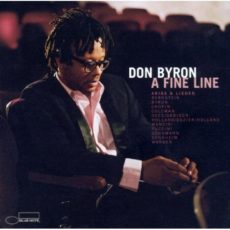
Daily Dose Of Jazz…
Donald Byron was born November 8, 1958 in The Bronx in New York City. His mother was a pianist and his father played bass in calypso bands. As well as listening to jazz recordings by Dizzy Gillespie, Miles Davis and others, he was exposed to other styles through trips to the ballet and symphony concerts.
He studied clarinet with Joe Allard and studied music at the New England Conservatory in Boston with George Russell. While in Boston, Byron performed and recorded with the Klezmer Conservatory Band, founded by NEC faculty member Hankus Netsky.
A gifted performer on clarinet, bass clarinet and saxophone, but on many of his albums he subordinates his own playing to the exploration of a particular style. Don is representative of a new generation of conservatory-trained jazz musicians who explore and record in a rich array of styles. His debut album in 1992, Tuskegee Experiments, bring classical avant garde and jazz improvisation together, while his albums like Ivey Divey are a more straight-ahead exploration of the traditional jazz, for which he has been nominated for a Grammy Award for his bass clarinet solo on I Want To Be Happy.
A practicing jazz historian and educator Byron recreates in spirit forgotten moments in the history of popular music with albums like Plays the Music of Mickey Katz and Bug Music. He has held professorships at Metropolitan State University of Denver, The University at Albany and MIT teaching composition, improvisation, music history, clarinet, and saxophone.
In 2001, Byron performed for the Red Hot Organization’s compilation album Red Hot + Indigo tribute to Duke Ellington, was named a 2007 USA Prudential Fellow and won a Guggenheim Fellowship. He has won the Rome Prize Fellowship and his Seven Etudes for solo piano made him a finalist for the Pulitzer Prize in Musical Composition.
Byron is a member of the Black Rock Coalition, has recorded with Allen Toussaint, Marc Ribot, Vernon Reid, Bill Frisell, Joe Henry, Hamiet Bluiett, Craig Harris, Mandy Patinkin, Ralph Peterson, Reggie Workman, David Murray, Steve Coleman, Bobby Previs, Anthony Braxton, Marilyn Crispell, Cassandra Wilson, Uri Caine and many others.
Composer and multi-instrumentalist Don Byron, who plays primarily clarinet, bass clarinet and saxophones, continues to perform, tour, record and educate, while venturing outside his jazz roots and into klezmer music, German lieder, cartoon jazz, hard rock/metal and rap.
Sponsored By
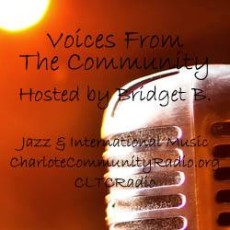
Voices From The Community
![]()
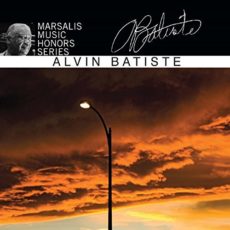
Daily Dose Of Jazz…
Alvin Batiste was born in New Orleans, Louisiana on November 7, 1932 and learned to play the clarinet. He was the first Black student to be invited to play with the New Orleans Philharmonic on Mozart’s Concerto. His childhood friend was fellow musician Ed Blackwell and in 1956, he spent time in Los Angeles, California working with Ornette Coleman.
Batiste released five albums as a leader with his debut, Musique D’Afrique Nouvell Orleans, hitting the streets in 1984. His final album, Marsalis Music Honors Series: Alvin Batiste, was a tribute produced by Branford Marsalis and also features Russell Malone and Herlin Riley.
Alvin worked as a sideman with Cannonball Adderley, Henry Butler, Billy Cobham, Marlon Jordan, the Clarinet Summit with John Carter, David Murray and Jimmy Hamilton, Mark Whitfield, Wynton Marsalis on the latter’s Crescent City Christmas Card. Though he could have risen to the top as a performer, he chose a life of teaching and mentoring.
As an educator he taught at his own jazz institute at Southern University in Baton Rouge. In addition, several well-known musicians studied under him such as Branford Marsalis, Randy Jackson of American Idol, Donald Harrison, Henry Butler, Charlie Singleton of Cameo, Ronald Myers and Woodie Douglas of Spirit.
He went on to host the radio show Jazz Sessions on WBRH, has held workshops and clinics around the globe as well as performing in concert in West Africa, Europe and the United States. Clarinetist, composer, arranger and educator Alvin Batiste, who performed in the avant-garde genre of jazz, passed away on May 6, 2007.
![]()
More Posts: clarinet
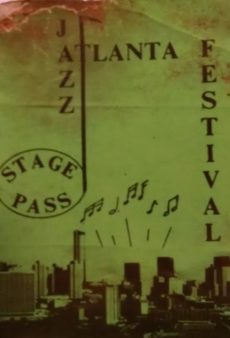
Atlanta Jazz Festival… 1980
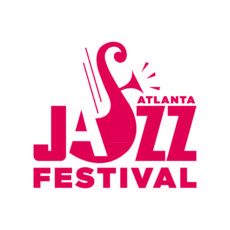
More Posts: festival
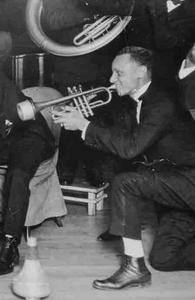
Daily Dose Of Jazz…
Amos White was born on November 6, 1889 in Charleston, South Carolina and grew up an orphan playing in the Jenkins Orphanage band in his teens. In addition, he traveled with minstrel shows and circuses.
After attending Benedict College, he returned to the orphanage to take a teaching position. During World War I, White played in the 816th Pioneer Infantry Band in France, then settled in New Orleans, Louisiana after the war.
Working as a typesetter, he played jazz in his spare time, working with Papa Celestin and Fate Marable among others. In the 1920s, he appeared on many records by blues singers such as Bessie Smith and Lizzie Miles, and played in the Alabamians. In 1928, he became the leader of the Georgia Minstrels.
In the 1930s, White moved to Phoenix, Arizona, where he played with his own group and with local dance groups, including Felipe Lopez’s. Later in the decade he relocated to Oakland, California, where he played locally into the 1960s in marching bands.
Trumpeter Amos White passed away on July 2, 1980 in Oakland, California.
![]()
More Posts: trumpet
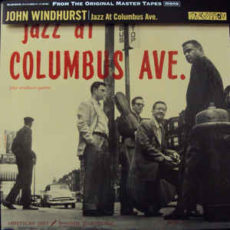
Daily Dose Of Jazz…
Johnny Windhurst was born John Henry Windhurst on November 5, 1926 in New York City, New York and was a self-taught trumpeter known for his solos. He considered Bix Beiderbecke, Wild Bill Davison, and Bunny Berigan among his influences and his feathery vibrato and mobility was mixed with the delicate playing style of Bobby Hackett.
At 15 he played his first public performance at Nick’s in New York City and made his professional debut during the spring of 1944 at one of Eddie Condon’s concerts at the Town Hall in New York City. At 18 years old, he was chosen to replace Bunk Johnson by Sidney Bechet to play at the Savoy Cafe in Boston, Massachusetts. Windhurst was initially recruited to the band to play the cornet and this engagement launched his career as a trumpeter.
He went on to play with Art Hodes and James P. Johnson at the Jazz at Town Hall concert in 1946. He then moved to the midwest and after a brief stint in the Chicago jazz scene he returned to the Savoy Cafe as a member of Edmond Hall’s band. Johnny eventually moved west to experience the West Coast jazz scene in California. His inability to read music had him declining gigs with Benny Goodman and Woody Herman while emphasizing his preference of informal jamming. Over the years, he played with musicians Louis Armstrong, Nappy Lamare, Walt Gifford, Edmond Hall and Eddie Condon. He led his own band, Riverboat Five, through Columbus, Ohio and Boston for several years, refraining from playing the most popular east coast venues and nightclubs to play college campuses and other small venues.
During the 1950s Windhurst worked with Ruby Braff in one of the groups known as Jazz at Storyville, performed at Condon’s club and performed with George Wettling, Jack Teagarden, Barbara Lea and took a stage role with actor Conrad Janis in an off-broadway musical titled, Joy Ride. He only made one recording with his swing quartet, the John Windhurst Quartet that included Buell Neidlinger as a sideman, titled Jazz at Columbus Avenue.
Throughout the 1960s and 70’s he opted to perform primarily in obscure venues in out-of-the-way corners of the USA. Despite his range of talent and success, Windhurst was seemingly content to hide from the big-time spotlight. He eventually moved upstate to Poughkeepsie with his mother, where he finished his career in a dixieland band at Frivolous Sal’s Last Chance Saloon. Several years later, after receiving an invitation to play the Manassas jazz festival in 1981, Windhurst passed away of a heart attack on October 2, 1981 in Dutchess County, New York.
Sponsored By
www.whatissuitetabu.com
![]()
More Posts: trumpet



